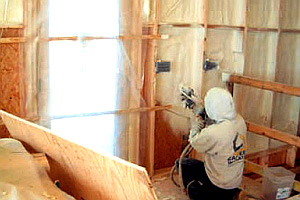 The Property Assessed Clean Energy Program (PACE) is being blocked for the time being by, of all things, Freddie Mac and Fannie Mae, holders of about half of the home mortgages in the country and a major player in the financial crisis that we are still recovering from.
The Property Assessed Clean Energy Program (PACE) is being blocked for the time being by, of all things, Freddie Mac and Fannie Mae, holders of about half of the home mortgages in the country and a major player in the financial crisis that we are still recovering from.
Berkeley pioneered a way to finance energy efficiency and renewable energy installations on buildings in 2008. Since then, 22 states have introduced similar programs. But the Property Assessed Clean Energy Program (PACE) is being blocked for the time being by, of all things, Freddie Mac and Fannie Mae, holders of about half of the home mortgages in the country and a major player in the financial crisis that we are still recovering from. PACE adds jobs and helps revitalize the construction industry; the irony is gushing like an oil spill.
PACE allows a city to offer loans to homeowners to improve the energy efficiency of their homes and to add renewable energy such as photovoltaics (PV). The loan is paid back to the city over 20 years or so through increased property taxes. But the savings in energy costs each year outpaces the increase in property taxes. It’s a win for the homeowner and the environment. When the home is sold, the loan stays with the house, since the new homeowners will continue to enjoy the benefit of the energy retrofits.
But Fannie and Freddie sent a letter to lenders questioning the practice. They worry that a city will get its loan money back first if the homeowner defaults, and leave the lender on the hook for the costs. When the owner of half the mortgages question a practice, lenders put the breaks on.
There is a lot at stake. Recurve, a San Francisco-based home performance company, stands to lose hundreds of thousands of dollars in home retrofit work that may no longer be financed through PACE. And California and other states stand to lose millions of seed money that would be provided by the federal government to cities to support PACE programs.
